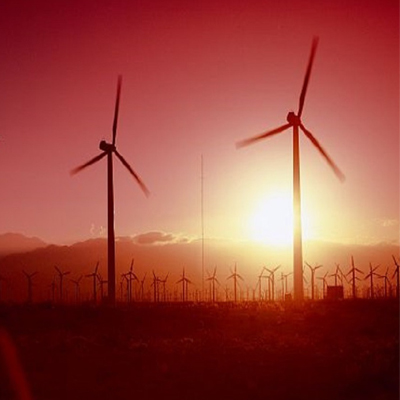Energy needs and demand for electricity as a preferred form of energy continue to grow at a rapid pace. Electricity consumption is expected to double from 2008 to 2035 according to the International Energy Agency (IEA), driven primarily by emerging economies especially China and India. At the same time, concerns over climate change are increasing.
The key challenge is to meet these growing demands with less environmental impact. Failure to meet this challenge will risk global economic downturn and long lasting socio-environmental costs.
Green energy technologies, from solar arrays and wind generators to smart grid and electric vehicles, are central to providing innovative solutions to meet the challenge.
Our research revolves around our expertise in electric power conversion as the ‘enabler’ to these green energy technologies. We work in collaboration with a wide range of stakeholders, including electric utilities and car makers in China, with a view to increasing the GDP per unit of energy consumption.
Our research in this area includes:
-
Designing generators to convert renewable energy such as wind power into electricity;
-
High efficiency, power dense, and sustainable electrical machine and drive systems;
-
Power electronic systems in energy efficiency and renewable applications;
-
Integration of wind generators and renewable energy systems to smart grids;
-
Inductive and wireless power transfer.
A number of our research projects require us to collaborate with partners from academia and industry. Our research has been funded by Agility Global Ltd, Engineering and Physical Sciences Research Council (EPSRC), Liberty Electric Cars, Lotus, Mitsubishi UK, NASA, National Natural Science Foundation of China (NSFC) and Technology Strategy Board (TSB).
About our research
Our greatest strength is the ability to combine the academic rigour and long-term perspective of a university with the commercial and business focus of industry.
Our excellence in strategic and applied research has enabled us to make significant contributions to the world around us for over 60 years. We address real life challenges and focus on research that is of strategic and practical importance.
We provide a supportive research community for students and our academic work is regularly published in journal article, book or thesis form.
Facilities and resources
Our newly built Electrical Laboratory is equipped with some latest test facilities for electrical machines. These include a high speed data acquisition system for the machine’s waveforms and a full range of performance analysis, and a programmable high voltage 600V power supply.
Our machine test rigs can provide motor tests up to the speed of 50,000 rpm at 1kW, and also the normal speed range of up to 3,000 rpm at 10kW. We use the high-spec Magtrol dynamometer, furnished with dedicated test software that allows various drive cycles and duty cycles to be performed. The test rigs allow full characterisation of electrical machines.
We have access to a number of design tools such as JMAG and ANSYS for finite element analysis. Besides, we also develop our own in-house codes for thermal analysis and system level design.
With the excellent on-campus manufacturing and prototype facilities combined with our in-house workshop support, we offer an unparalleled range of technical services in the area of electrical machines and drives.
Working with us
We specialise in all aspects of electrical machine design, and have considerable expertise in power electronic systems and renewable energy systems. We offer consultancy services including feasibility studies, proof of concept, and technology demonstration. With our comprehensive in-house design and prototyping facilities, we can provide complete solutions to our clients by turning their concepts into reality.
Some of the services and collaborations that we offer include:
• Design and manufacture of electrical machines from client’s specifications, in particular permanent magnet machines using rare-earth or ferrite materials
• Design and analysis of multi-MW electrical machines for high power applications
• Undertake electromagnetic, structural and thermal analysis, and performance prediction of electrical machines, by means of analytical 2D and 3D modelling techniques
• Design and prototyping of power converters and controllers for electrical machines
• Design and manufacture of power electronic systems for the energy efficiency market
• Analysis and design of wireless power transfer and inductive charging
• Analysis of power flow, stability and fault tolerance of electric networks that incorporate renewable energy systems
• Study of the emerging multi-DC terminal transmission for offshore wind farm applications.
